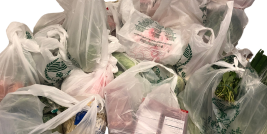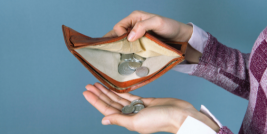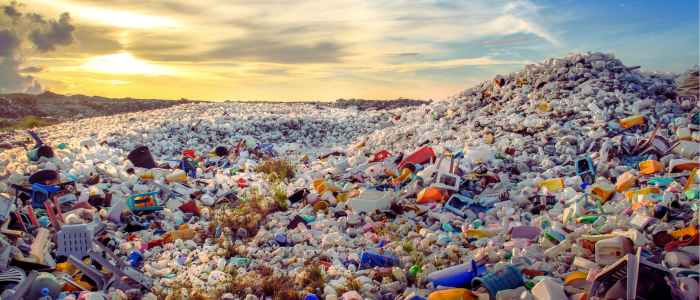(4 min read)
Earth Day is an annual event on April 22 to demonstrate support for environmental protection.
It was first held on April 22, 1970 and now includes a wide range of events coordinated globally by Earthday.org including 1 billion people in more than 193 countries. The official theme for 2024 is “Planet vs. Plastics”.
Saving the planet
Remember the time when you went into a supermarket and took your shopping home in a handful of plastic bags which you then threw away?
 Then, a charge was introduced to actively discourage the use of plastic bags. In UK and European supermarkets this was done in 2015. And in the UK, in 2021, the charge was increased to 10p and extended to all businesses. This plastic bag charge has led to 98% drop in use in England. (2)
Then, a charge was introduced to actively discourage the use of plastic bags. In UK and European supermarkets this was done in 2015. And in the UK, in 2021, the charge was increased to 10p and extended to all businesses. This plastic bag charge has led to 98% drop in use in England. (2)
Plus, it led to a reduction of between 74-90 per cent in Belgium, South Africa, Hong Kong and Portugal, and even about 50 per cent in Botswana and China! (3).
 But’s not just the tax that is so effective– 5 pence or 5 cents is unlikely to stop you on its own. The ‘friction’ will also work against you: that you have to find the change or ask for the plastic bags, rather than just grab them. What is key, however, is that the tax also signals a social norm. It tells us what society, everyone around us, thinks is the right behaviour. And, as social beings, we tend to conform to these norms.
But’s not just the tax that is so effective– 5 pence or 5 cents is unlikely to stop you on its own. The ‘friction’ will also work against you: that you have to find the change or ask for the plastic bags, rather than just grab them. What is key, however, is that the tax also signals a social norm. It tells us what society, everyone around us, thinks is the right behaviour. And, as social beings, we tend to conform to these norms.
Choice Architecture
This is a great moment to tell you about “choice architecture”. The term was coined by Richard H. Thaler and Cass R. Sunstein in their book Nudge (1).
Choice architecture is the design of different ways in which choices can be presented, and have an impact on decision making. For example:
- the number of choices presented
- the way in which features are described
- the presence of a “default” which pre-selects your choices.
These will all influence the choices we make.
The tax is a clear signal of what society doesn’t want you to do.

We use these kinds of insights to help our clients encourage their staff to become more cyber secure – not just telling people to ‘do this’ or ‘do that’, but also to ‘nudge’ people in the right direction. Here are some examples:
- Explicitly thanking people when they report ‘phishing’-like messages to their IT Helpdesk
- Adding a warning to emails when they come from outside the organisation
- Requiring people to confirm “are you sure you want to send the attachment to an external recipient?”, when an attachment is added to the e-mail. This added ‘friction’ is designed to slow people down, take them off ‘auto-pilot’ and do not share information they don’t need to.

There are many such examples that will help you guide people to be more cyber secure.
If you’d like to now more, please don’t hesitate to contact us, we’re happy to help: https://psybersafe.com/contact-us
References
(1) Thaler, Richard H., and Cass R. Sunstein. 2009. Nudge. New York, NY: Penguin.
(2) https://www.theguardian.com/environment/2023/jul/31/government-urged-to-repeat-success-of-plastic-bag-charge)
(4) (see for example Lieberman, Alicea and Duke, Kristen and Amir, On, How Incentive Framing Can Harness the Power of Social Norms (September 11, 2018). Available at SSRN: https://ssrn.com/abstract=3247418 or http://dx.doi.org/10.2139/ssrn.3247418 )
Sign up to get our monthly newsletter, packed with hints and tips on how to stay cyber safe.
 Mark Brown is a behavioural science expert with significant experience in inspiring organisational and culture change that lasts. If you’d like to chat about using Psybersafe in your business to help to stay cyber secure, contact Mark today.
Mark Brown is a behavioural science expert with significant experience in inspiring organisational and culture change that lasts. If you’d like to chat about using Psybersafe in your business to help to stay cyber secure, contact Mark today.